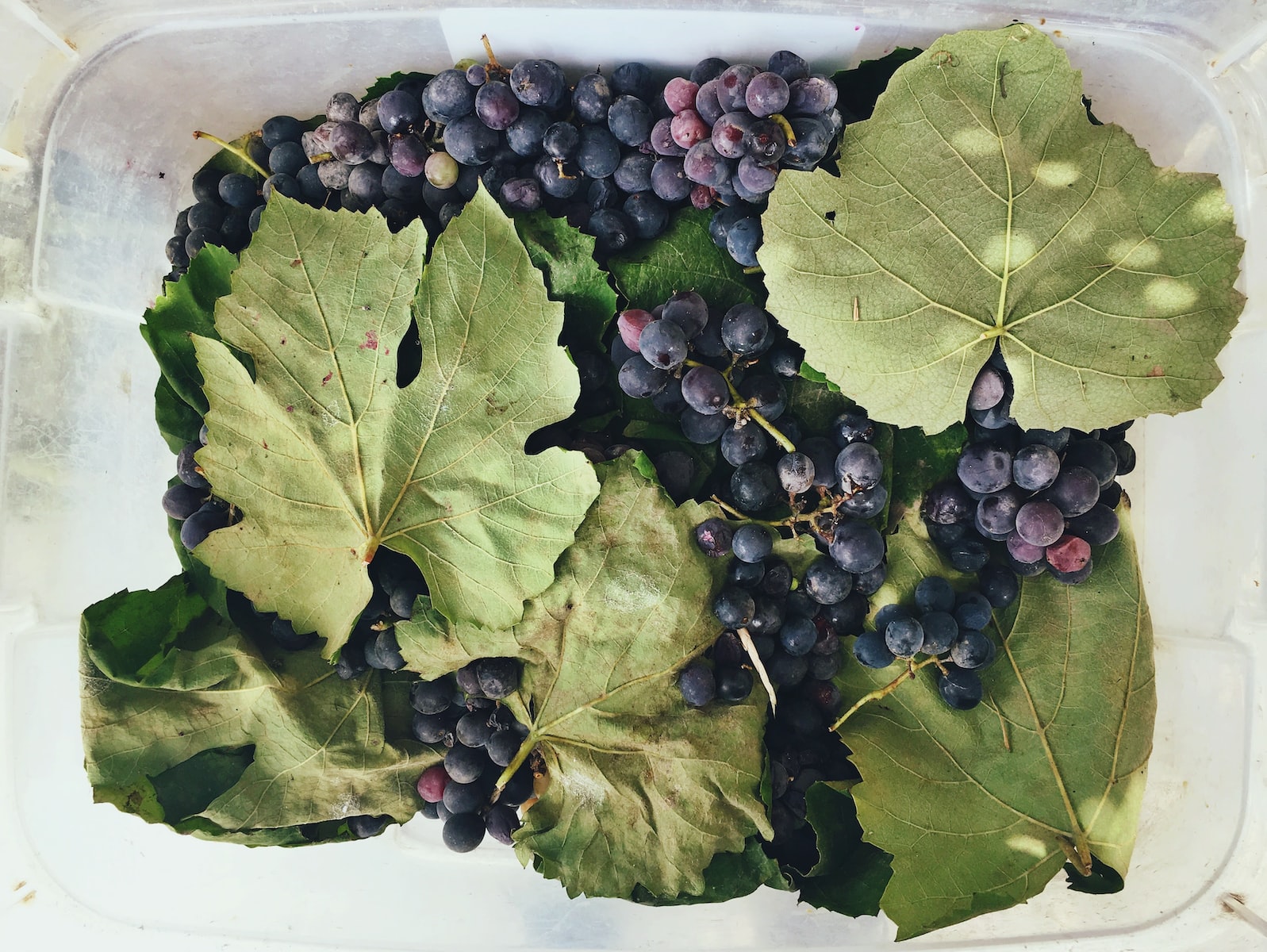Are muscadine grapes poisonous to dogs? This is a question that many pet owners may not know the answer to. As an owner, it’s important for you to be aware of what foods are safe and unsafe for your dog so they can stay healthy and happy.

Muscadines are known as “the grape of the South” due to their popularity in Southern cuisine but do these delicious fruits pose any danger when eaten by our canine friends?
In this article, we’ll discuss everything you need to know about muscadines and how they affect your pup’s health – from prevention tips, treatment options if poisoning does occur, common questions about feeding muscadines safely along with other fruits/vegetables plus much more!

Table of Contents:
- Are Muscadine Grapes Poisonous to Dogs?
- Prevention and Treatment of Muscadine Grape Poisoning in Dogs
- Common Questions About Muscadine Grapes and Dog Health
- Tips for Keeping Your Dog Safe Around Grapes and Other Fruits/Vegetables
- FAQs in Relation to Are Muscadine Grapes Poisonous to Dogs
- Conclusion
Are Muscadine Grapes Poisonous to Dogs?

They have a thick, tough skin and sweet-tart flavor that makes them popular for eating fresh or making jams and jellies. While muscadines are generally safe for humans, they can be toxic to dogs if eaten in large quantities.
What are Muscadine Grapes?
Muscadine grapes (Vitis rotundifolia) are small, round fruits with thick skins and juicy flesh. The color of the skin ranges from bronze to dark purple, while the flesh is usually yellowish-green or pinkish-red in color. Muscadines have a unique flavor that is both sweet and tart at the same time. They’re often used to make jams, jellies, wines, juices, pies and other desserts.
Are Muscadine Grapes Toxic to Dogs?

Yes. Eating too many muscadines can cause toxicity in dogs due to their high sugar content as well as compounds found within their skins called tannins which can cause gastrointestinal upset when consumed in large amounts by animals such as dogs who lack certain enzymes needed for digestion of these compounds properly. Therefore, it is important not to feed your dog any more than an occasional treat size portion of muscades if you choose to offer them at all.
Symptoms of Muscadine Grape Poisoning in Dogs

If your dog has eaten too many muscads then symptoms may include vomiting, diarrhea, abdominal pain, lethargy, loss of appetite, increased thirst or urination. If left untreated these symptoms could lead to further health complications so it is important to seek veterinary care immediately if you suspect your pet has been poisoned by consuming too much muscade grapes.
It is important for pet owners to be aware of the potential risks associated with muscadine grapes and take necessary precautions. In this article, we will discuss prevention and treatment of muscadine grape poisoning in dogs.
Prevention and Treatment of Muscadine Grape Poisoning in Dogs

They have a unique flavor and texture, making them popular for eating fresh or in jams and jellies. Unfortunately, muscadines can be toxic to dogs if ingested in large quantities. It’s important for pet owners to know how to prevent muscadine grape poisoning in their canine companions as well as what treatments are available should it occur.
Preventing Muscadine Grape Poisoning in Dogs: The best way to avoid muscadine grape poisoning is by keeping your dog away from any source of these grapes. This includes not only the vineyard but also grocery stores, farmers markets, or even your own backyard if you grow them yourself. If you do decide to give your pup some muscadines as a treat, make sure they’re washed thoroughly first and that you monitor them while they eat it so that they don’t ingest too much at once.
Treatments for Muscadine Grape Poisoning in Dogs: If your dog does happen to consume an excessive amount of muscadines, there are several treatments available depending on the severity of symptoms exhibited by your pup. These include inducing vomiting with hydrogen peroxide solution (if done within two hours after ingestion), administering activated charcoal orally or through injection (to absorb toxins), IV fluids (to flush out toxins) and medications such as anti-nausea drugs or steroids (for inflammation). Your vet may also recommend dietary changes during recovery such as feeding small meals more frequently throughout the day instead of one large meal at once.
Even if you take all necessary precautions when giving treats like muscadine grapes to your pooch, it is still possible that he could become ill due to its toxicity levels being higher than other types of grapes. Therefore, seeking veterinary care immediately is highly recommended, especially if he exhibits signs such as vomiting, diarrhea, lethargy or abdominal pain. Early intervention can help reduce long-term damage caused by this toxin exposure. Additionally, keep an eye out for dehydration which could be caused due to loss of appetite resulting from this condition; therefore provide plenty of water access accordingly.
It is important to be aware of the risks associated with muscadine grapes and other fruits and vegetables that could potentially be poisonous to your dog. To learn more, read on for answers to common questions about muscadines and dog health.
Common Questions About Muscadine Grapes and Dog Health

Can I Feed My Dog Muscadines?

Yes, you can feed your dog muscadine grapes. However, it is important to note that eating muscadines that are high in sugar and should only be given as an occasional treat. Additionally, the seeds of the grape must be removed before feeding them to your pet as they can cause intestinal blockage if ingested. It is also important to make sure that any muscadines you give your dog are ripe and free from mold or other contaminants.
Are There Any Benefits to Feeding My Dog Muscadines?

Muscadine grapes contain antioxidants which may help reduce inflammation in dogs with arthritis or other joint issues. They are also a good source of vitamins A and C which can help boost immunity and keep skin healthy. Additionally, muscadines have been found to have anti-cancer properties due to their high levels of polyphenols which may help protect against certain types of cancer cells in dogs.
Are There Other Fruits or Vegetables That Could Be Harmful To My Dog?

Yes, there are some fruits and vegetables that could potentially be harmful for your pet if eaten in large quantities or not prepared properly prior to consumption. These include apples (seeds), avocados (skin/pit), onions/garlic (raw), raisins/grapes (seedless) and tomatoes (stems). In addition, many human foods such as chocolate, coffee grounds/beans, alcohol, macadamia nuts and xylitol sweetener should never be fed to pets under any circumstances as they can cause serious health problems including death if consumed by animals.
Muscadine grapes can be a healthy snack for your pup, but it’s important to understand the risks associated with feeding them to your dog. With the right precautions and supervision, you can ensure that your pet is safe when enjoying this delicious fruit. Let’s take a look at some tips on how to keep your pet safe around other fruits and vegetables.
Tips for Keeping Your Dog Safe Around Grapes and Other Fruits/Vegetables

It is important to keep your pet safe around grapes and other fruits/vegetables. Supervising your dog around produce can help prevent them from ingesting something that could be harmful. When you are in the kitchen or grocery store, make sure to keep an eye on your pup so they don’t get into any trouble.
Store fruits and vegetables out of reach of pets at all times. This includes keeping items off counters, away from low shelves, and securely stored in pantries or refrigerators when not in use. If you have a particularly curious pet, it may be best to put locks on cabinets or drawers where food is kept for extra security.
Discard unused or spoiled produce immediately as these can pose a health risk if ingested by pets. Spoiled produce often contains bacteria that can cause gastrointestinal upset such as vomiting and diarrhea, which can lead to dehydration if left untreated. It is also important to clean up after preparing meals with fresh ingredients, as even small amounts of certain foods like onions and garlic can be toxic for dogs if consumed in large quantities over time
FAQs in Relation to Are Muscadine Grapes Poisonous to Dogs

What happens if my dog eats muscadine grapes?
Muscadine grapes are toxic to dogs and can cause vomiting, diarrhea, abdominal pain, lethargy, weakness and even kidney failure. If your dogs eat muscadines it is important to seek veterinary care immediately as treatment may be necessary. Symptoms of toxicity can take up to 24 hours after ingestion so prompt action is essential for the best outcome. If you suspect your dog has eaten muscadine grapes, contact your veterinarian right away.
What kind of grapes are toxic to dogs?

Grapes and raisins can be toxic to dogs, causing kidney failure. If your dog eats grapes or raisins at small amounts, then it can cause vomiting, diarrhea, lethargy and abdominal pain in dogs. If your dog has eaten any grapes or raisins it is important to seek your vet immediately as the toxins can quickly lead to serious health problems. It is best to avoid feeding any type of grape or raisin product to your pet as even a small amount could have potentially fatal consequences.
What happens if my dog accidentally eats 1 grape?

Grapes and raisins can be toxic to dogs, even in small amounts. If your dog ate grapes, it is important to monitor them closely for any signs of illness such as vomiting, diarrhea or lethargy. If these symptoms occur after your dogs eat grapes, then contact your veterinarian immediately. It is also recommended that you provide plenty of fresh water for your pet and watch their urine output over the next 24-48 hours. Treatment may include inducing vomiting and providing supportive care with fluids if needed.
Do animals eat muscadine grapes?

Yes, animals can eat muscadine grapes. They are a safe and healthy snack for many pets, including cats, dogs, ferrets, snakes and rats. Muscadines are high in antioxidants and provide essential vitamins and minerals that can help keep your pet healthy. However, it is important to note that the seeds of these grapes contain cyanide compounds which could be toxic if ingested in large amounts so it’s best to feed them as an occasional treat only.
Conclusion

In conclusion, it is important to remember that muscadine grapes can be poisonous to dogs. While the risk of toxicity is low, it’s still important to keep your dog away from any type of grape or raisin product. If you suspect your pet has eaten a muscadine grape, contact your veterinarian immediately for advice and treatment options. By taking the necessary precautions and being aware of potential risks associated with are muscadine grapes poisonous to dogs, you can help ensure that your pet stays safe and healthy.
Are you worried that your pup might be at risk of consuming muscadine grapes? If so, AltPet.net is here to help! Our team of experts have compiled all the information and advice needed to ensure your pet’s safety when it comes to these potentially toxic fruits. We provide detailed tips on how to avoid potential hazards and offer up-to-date research on what dogs can safely consume. Visit our website now for more information about keeping your furry friend safe from harm!

